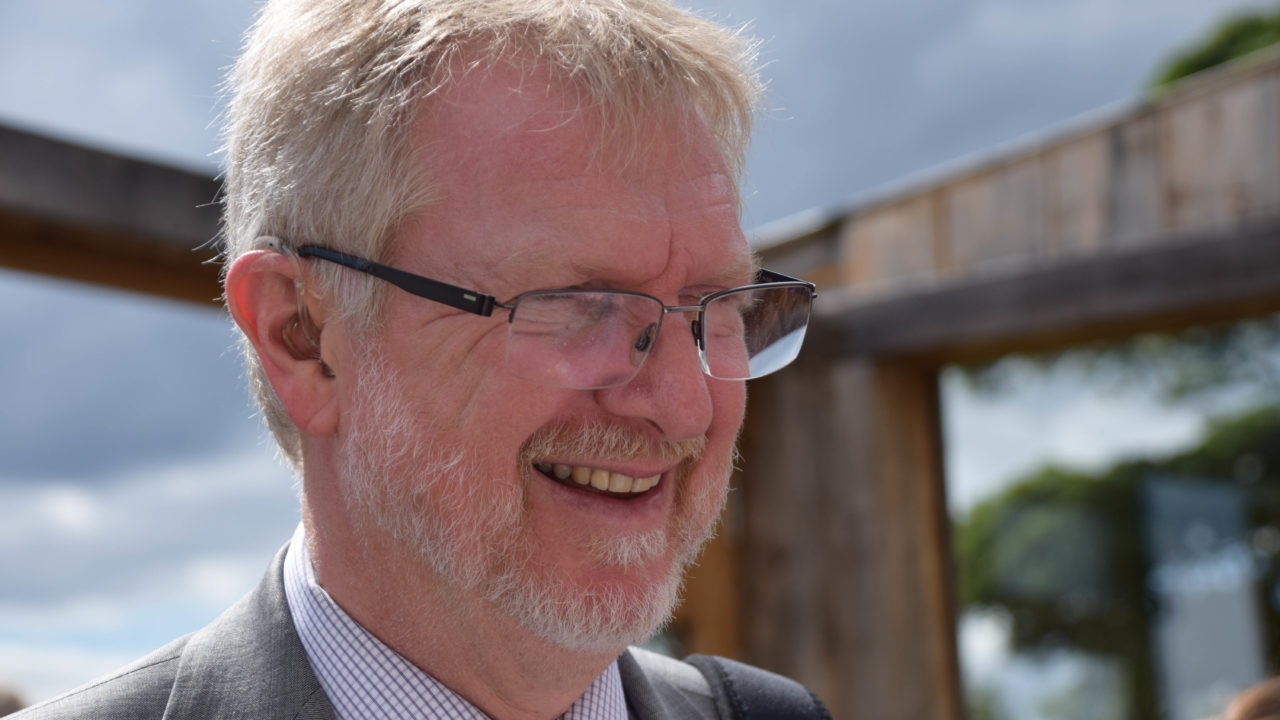Meet Our Members: William Stephens, Cranfield University
Professor William Stephens is University Secretary and Head of the Executive Office at Cranfield University. In our new Q&A feature, he gives us an insight into his role at the institution.


What is your higher education history?
I have been working at Cranfield for 31 years. I was an academic for more than 20 years before taking up the role of Secretary. This gives me a different perspective – an archetypal poacher turned gamekeeper!
What does your current role and remit encompass?
I currently have responsibility for University governance for Council and the Executive; trying to ensure that the right people discuss the right stuff at the right time. I’m closely involved in our strategic planning processes aiming to keep the University on mission whilst being agile enough to respond rapidly to changing circumstances.
I also have responsibility for information governance across the University, which certainly keeps me on my toes. For example, whether or not the General Data Protection Regulation applies post-Brexit. The implications are far reaching and will require considerable effort by many HEIs to align with the new requirements.
What does a typical day look like for you in your role?
I spend a lot of my time interacting with colleagues about their plans and how they fit in with the University’s strategy – mostly discussing risks and implications and how to get their project off the ground. I see this mostly as a mentoring rather than gatekeeping role aimed at maximising the chances of success.
Our cycle of Executive and Council business means that there is always a long list of items being brought forward, so prioritising these can require a certain amount of diplomacy.
Over the past few years, we’ve done quite a lot of work on revising our Royal Charter and Statutes, making the Council the unambiguous governing body, reducing its size from 27 to 18 members to improve its efficiency, revising employment Statutes and dissolving the Court. This certainly isn’t an everyday activity but there is always some improvement on the agenda to think about.
For light relief, I’ll also sign off responses to the seemingly endless FOI requests the University receives.
What do you find most enjoyable and challenging in your role?
I really enjoy working with colleagues to improve the University’s performance. This can be at many different scales, from small process changes that make an individual’s working life a bit better to institution-wide transformations that should bring quite radical benefits. Most enjoyable of all is to see colleagues realise that it is within their power to make changes for the better.
On the other hand, Cranfield is a highly devolved organisation and it can be challenging to get everybody going in the same direction. Asking people to lift their eyes beyond the immediate horizon to see the wider picture is always instructive.
What are the current challenges for your institution?
Cranfield is a relatively small and entirely postgraduate university focused on technology and management so it operates rather differently from many others. We often find that regulation designed largely for undergraduate education fits less well for PG – TEF is an obvious example.
More immediately, Brexit brings little good news in my view. We have a high proportion of EU students on some of our courses and we need to find ways of ensuring that they can continue to come and study at Cranfield into the future. Much of our research is industry funded and the jury is out on the extent to which this may be impacted as changes in the economic climate impact research budgets.
What do you think are the biggest changes ahead for higher education?
All of the above – plus increased competition from private providers, the changing educational landscape as apprenticeships take hold, a Prime Minister who, as Home Secretary, seemed dead set against letting anyone from outside the EU study in our universities (soon to be broadened to anyone outside these sceptred isles?)
The HE landscape is likely to change dramatically, whether it will be an earthquake or continental drift I’m not sure, however our sector as a whole is very resilient and providing products and services that people continue to want should secure our future.
Who has inspired you and why?
There are so many inspiring people around but I’ll highlight two – I was at Edinburgh University with Piers Sellers, fellow Ecologist who followed his dream to become an astronaut. He had to go through a lot, not least becoming an American citizen, but he joined NASA and has three shuttle missions and many hours of space walking under his belt.
More prosaically, I’m also inspired by Paul Polman, CEO of Unilever, who has had an enormous impact in making sustainable business a real possibility rather than an oxymoron.
